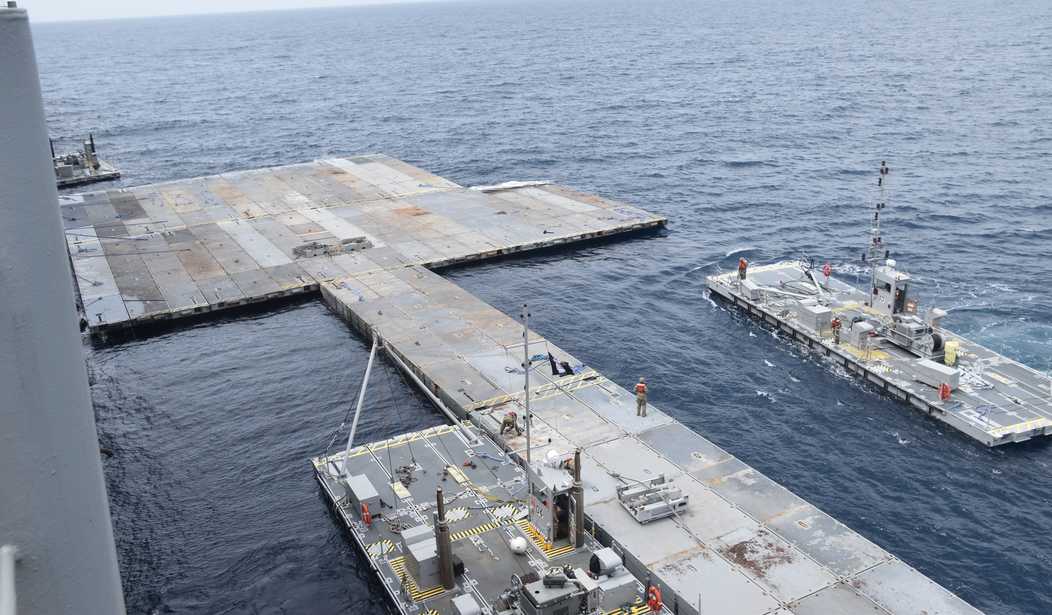The U.S.-built temporary "humanitarian pier" on Gaza's Mediterranean coast — announced by President Joe Biden in his March State of the Union address and completed last week — has quickly turned into a chaotic, dangerous place.
In addition to American troops injured in non-combat accidents, the pier is not moving aid to residents in the enclave at the level hyped by Pentagon officials. Earlier this week, the Department of Defense said that none of the hundreds of metric tons of aid delivered across the pier to Gaza had made it to Gazans.
Even worse, the pier has been the target of attacks by terrorists in Gaza — and now defensive U.S. weapons are being activated to protect the floating aid delivery platform.
In April, terrorists launched a mortar attack on the marshaling area where the pier connects to land in the Gaza Strip during its construction. The mortar caused minimal damage and the Washington Post said U.S. servicemembers weren't in harm's way — a generous assessment given American troop's presence immediately adjacent to a war zone filled with terrorists who'd celebrate a successful hit on a U.S. target — but it highlighted the shortsightedness of Biden's plan.
Now that the pier's construction is complete, American C-RAM systems to intercept incoming fire have been set up because Hamas, Palestinian Islamic Jihad, and other Iran-backed terrorists continue to attack humanitarian aid — not that pro-terrorist voices would admit the inconvenient truth that terrorists are the ones disrupting aid delivery.
The U.S. pier is not the only entry point for humanitarian aid being attacked by terrorists. On Thursday, the Kerem Shalom border crossing between Israel and Gaza near Rafah was attacked by Hamas for the fourth time this month following attacks on May 5, 9, and 12. The first attack killed four IDF soldiers.
At Kerem Shalom, "hundreds of trucks continue to cross into Gaza daily to provide humanitarian aid to Gazans," noted Foundation for Defense of Democracy (FDD) Adjunct Fellow Seth Frantzman of the crossing. "This is important as the IDF expands operations in Rafah and in northern Gaza. The aid provides for Gazan civilians even as Hamas terrorists continue to target the aid crossing," he added.
Joe Truzman, the senior research analyst at FDD's Long War Journal, emphasized the fact that "Hamas attacks on locations that facilitate aid to the people of Gaza continue because international pressure has failed to prevent the terrorists from doing so. Meanwhile, Israeli military operations in the Rafah area have so far failed to stop Hamas from firing on Kerem Shalom," a "crucial hub" for humanitarian aid distribution in Gaza.

